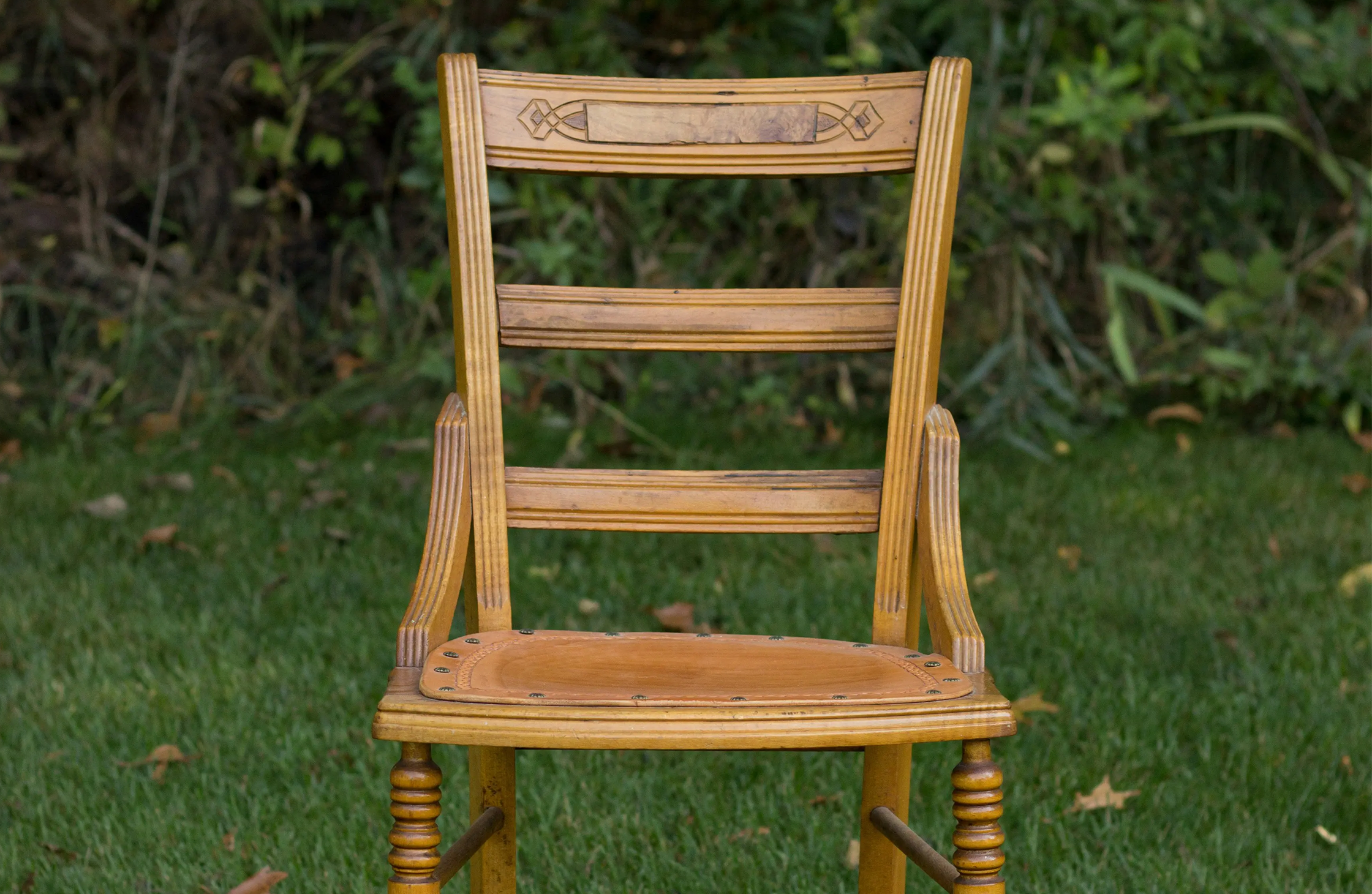Photo by Kelly Miller on Unsplash
This article is bilingual! Scroll down for the English translation.
Entre las palabras dichas existe un vacío evidente y necesario. Hace ya un par de meses que esperaba sentado, recorriendo con mis manos los bordes curvados de aquella silla de madera, buscando con las yemas de los dedos las partes inestables, los huecos, las líneas, las raspaduras, hendiduras invisibles que solo al detallar bajo el brillo de la luz se hacen presentes. Ahí, en ese espacio, mi mente intentaba constantemente desaparecer, dejar de estar presente en aquella reunión impetuosa de seres inmensos en la torre del ego.
“La unión de Estados norteamericanos y colonias accesibles”, pensaba yo en esa fuga a la que mi espíritu y mi conciencia aspiraban con ambición. Mi cuerpo asentía constantemente, en una programación automática del mecanismo que une mi cabeza con el resto de mi ser.
“Esto es América, Ulises. A pesar de estar jodidos, aún podemos ser ricos y tener seguridad económica.” ¿Pero dónde había escuchado algo similar? Claro: el PRI, mi familia en México, mis amigos, la cultura. “El PRI roba, pero nos deja robar”, se decía siempre que el gobierno hacía de las suyas en tiempos de elecciones.
Desde que la mirada comienza a colocar la intención en su objetivo, ni la palabra más dulce logra ocultar el cadáver exquisito con el que alimentamos nuestra mentira. Ese libro nuevamente llegó a mi mente y, como queriendo desaparecer de la espontánea realidad, recordé cómo aquel ser colocó entre sus brazos a un cuerpo de carne y sin habla. Lo acogió en contra de toda ley, lo alimentó, lo cobijó, para terminar siendo solo eso: un pedazo de carne. Ah, los escritores argentinos y sus excelentes referencias.
“¿Me estás escuchando?”
Cuando reconocí que mi error no me define, dejé de golpear la razón con ese gran mazo de sentimientos y adormecí todo lo demás para poder descansar de tanto peso. Así, la silla dejó de tener importancia. Fue como si la hubiese desprendido de un millar de palabras extra que la redefinían y me hacían querer entenderla hasta en la última de sus conversaciones. “Sí, sí te escucho. Sí, claro que te escucho, claro que te entiendo, claro que sé lo que estás diciendo. Lo he escuchado tantas veces, en tantos lugares, en otros tonos, en otras caras, en muchos otros conceptos.”
Estoy a punto de convertir mis pies en pasos, mi salida en una fuga, y esta vez solo es para no tener que ser algo que no deseo continuar siendo.
Después de que me alejé y dejé de escuchar, existió en el segundo un paso en falso que abrió la puerta al aturdimiento de los sentidos. Me he disociado completamente. Y es que en la decepción se encuentra una luz etérea, de poder, de sensación inmunológica. Me encuentro herido nuevamente de un ala, todo por volar directamente hacia los vacíos, hacia las alturas. Entre los estatutos completos que limitan la buenaventura y la fe, decidí no establecerme en la cálida esfera social que te nombra y te etiqueta para así poder sentirte más seguro. Nadé y navegué como si un colosal hombre de piedra me persiguiera por detrás, un titán avasallante queriendo culminar la historia ya decidida de un Homero y su Odiseo.
Este ensato del sentir es acerca de soltar, con palabras constantes, curtidas de experiencia, afiladas de tanto golpear entre las aguas dulces y las corrientes arduas de los caminos de la vida. Sentir se define como la acción de presenciar la vida mediante los sentidos y los sentimientos. Sentir se separa de ser y percibir, pero también de moldear, de capturar. Como quien encierra con sus manos la luz, pero esta es tan inmensa que no queda más que apartar la mirada.
La luz de la soledad, temerosa, se vuelve un pretexto para no sentir jamás, o para entender que sentir en multitud es, más bien, un escenario de compañía necesitada. Pero el sentir en su individualidad es la inmunidad a la derrota y la victoria de la experiencia misma del vivir.
Te dejo desde ahora sentir, seguir, morir, reír, renacer, curar, emitir, transformar, durar, volar, capturar, desolar, anunciar, mencionar, expresar, crecer, desaparecer, ir y venir. Te permito mi propia libertad en el olvido de que todo es pasajero y eterno: en la ciudad, en el solar, en un dedo, en toda la paz, en el corretear de los años y en la minuciosa esfera terrenal. Aquí está la tonada perfecta en la entrada de una novela que termina antes de empezar.
Así mismo, el hombre decidió denunciar su locura ante toda la columna de flores. Él mismo decidió dejar en un silencio pausado su propia participación del alma al corazón, y por ende dejó morir todo porque de él no depende nada: ni la vida ajena ni la vida que él aclamaba ser suya. El hombre ensayó vivir, sentir y agradecer que pudo, por poco, entender algo, y así aprender a respirar mejor.
English translation:
Between the words spoken, there exists an evident and necessary void. It has been months now that I’ve been sitting here, tracing the curved edges of that wooden chair with my hands, seeking with my fingertips the unstable parts, the gaps, the lines, the scrapes, the invisible grooves that only become apparent under the light’s gleam. There, in that space, my mind persistently attempted to disappear, to stop being present at that impetuous gathering of immense beings in the tower of ego.
“The union of northern states and accessible colonies,” I thought in that escape to which my spirit and conscience ambitiously aspired. My body nodded constantly, an automatic programming of the mechanism that ties my head to the rest of my being.
“This is America, Ulises. Despite being screwed, we can still be rich and have economic security.”
But where had I heard something similar? Of course: the PRI, my family in Mexico, my friends, the culture. “The PRI steals, but they let us steal,” they always said whenever the government got up to its antics during election times.
Since the moment one’s gaze begins to place intention on its target, not even the sweetest word can conceal the exquisite corpse with which we feed our lie. That book returned to my mind, and as if wanting to vanish from the spontaneous reality, I recalled how that being held a body of flesh and no speech in its arms. It embraced it against all laws, fed it, sheltered it, only for it to end up being just that: a piece of flesh. Ah, Argentine writers and their excellent references.
“Are you listening to me?”
When I acknowledged that my mistake does not define me, I stopped battering reason with that heavy mallet of feelings and numbed everything else to relieve myself of so much weight. Thus, the chair lost its importance. It was as if I had detached it from a thousand extra words that redefined it and made me want to understand it down to its last conversation.
“Yes, yes, I hear you. Yes, of course, I hear you, of course, I understand you, of course, I know what you’re saying.” I’ve heard it so many times, in so many places, in different tones, on other faces, in many other concepts.
I am on the verge of turning my feet into steps, my exit into an escape, and this time it’s just so I don’t have to be something I no longer wish to continue being.
After I moved away and stopped listening, there was, in that second, a misstep that opened the door to the disarray of the senses. I have completely dissociated. And in disappointment, there is an ethereal light — of power, of immune sensation. I find myself wounded once again, this time in one wing, all because I flew straight into the voids, into the heights. Among the complete statutes that limit good fortune and faith, I decided not to settle in the warm social sphere that names you and labels you so that you might feel safer. I swam and sailed as if a colossal stone man pursued me from behind, a towering titan seeking to conclude the preordained story of a Homer and his Odysseus.
This essay on feeling is about letting go — with constant words, seasoned with experience, sharpened from striking repeatedly amidst the sweet waters and the arduous currents of life’s paths. Feeling is defined as the act of witnessing life through the senses and emotions. Feeling separates itself from being and perceiving, but also from shaping, from capturing — like someone trying to enclose light in their hands, only to realize it is so vast that they can do nothing but avert their gaze.
The light of solitude, fearful, becomes an excuse to never feel again or to understand that feeling among the multitude is, rather, a scenario of needful company. But feeling in its individuality is immunity to defeat and the victory of the very experience of living.
From now on, I leave you to feel, follow, die, laugh, be reborn, heal, emit, transform, endure, fly, capture, desolate, announce, mention, express, grow, disappear, come and go. I grant you my own freedom in forgetting that everything is both fleeting and eternal: in the city, in the yard, in a finger, in all peace, in the chase of years, and in the meticulous earthly sphere. Here lies the perfect tune at the entrance of a novel that ends before it begins.
Thus, the man decided to denounce his madness before the entire column of flowers. He himself chose to leave his soul’s participation in his heart suspended in a quiet pause; and in so doing, he allowed everything to die because nothing depended on him — not the lives of others nor the life he claimed as his own.
The man rehearsed living, feeling, and being grateful that he could, if only briefly, understand something, and thus learn to breathe better.
Ulises Navarro es el director de operaciones de _Alcon Media, LLC, donde combina su pasión por las operaciones de los medios con su dedicación a la justicia social, el folklore y el periodismo independiente. También es el presidente de klaindastino kors. Originario de Guadalajara, México, es un filósofo y escritor autodidacta que emigró a los Estados Unidos a la edad de 21 años, trabajando inicialmente como agricultor en los campos de Washington y Oregón. Fue allí donde nació su deseo de lucha social por los derechos de los migrantes. Ulises recibió el premio BFT del Salón de la Fama del Transporte Público por su informe “Sobre la inclusión en el transporte público”. Ahora trabaja en muchos proyectos informativos y educativos, incluido El Centro de la Dignidad.
Ulises Navarro is the Chief Operating Officer of _Alcon Media, LLC, where he combines his passion for media operations with his dedication to social justice, folklore, and independent journalism. He is also the president of klaindastino kors. Originally from Guadalajara, Mexico, he is a self-taught philosopher and writer who migrated to the United States at the age of 21, working initially as a farmer in the fields of Washington and Oregon. It was there where his desire for social struggle for the rights of migrants was born. Ulises received the BFT Public Transportation Hall of Fame Award for his reporting “On Inclusion in Public Transportation”. He now works on many informational and educational projects, including El Centro de la Dignidad.
Este artículo es presentado por _El Vuelo Informativo, una asociación entre Alcon Media, LLC y Tumbleweird, SPC.
This article is brought to you by _El Vuelo Informativo, a partnership between Alcon Media, LLC and Tumbleweird, SPC.


